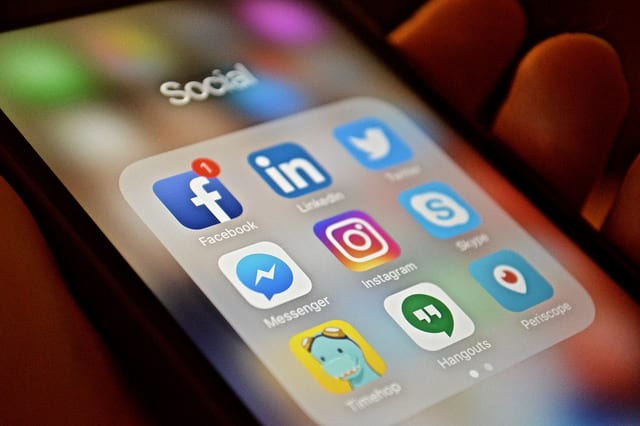In his lawsuit, Nevada Attorney General Aaron Ford claims that social media companies are intentionally exploiting children through the use of “addictive” features and never-ending content feeds.
Nevada has filed an independent legal challenge against five of the country’s most influential social media companies, claiming that they have created competing variants of “an addition machine” intended to exploit children too young to have any capacity for self-control.
According to The Associated Press, the state’s attorney general on Tuesday filed three related lawsuits in a Las Vegas-based court. Defendants named in the claims include TikTok, Snapchat, and Meta Platforms, the parent company of Instagram, Facebook, and Facebook Messenger.
“All of these platforms use features like endless scrolling, dopamine-inducing rewards, disappearing content, likes, shares, push notifications, and other elements to maximize youth use, manipulate young emotions, and exploit children’s developing mines—all for massive financial gain,” state Attorney General Aaron Ford said in a statement. “Each of these platforms has also been linked to serious dangers to kids, including auto accidents, increases in drug overdoses, suicides, eating disorders, sexual exploitation, and more.”
“My commitment to protecting consumers, particularly those that are as vulnerable as our youth, is unwavering,” he said. “Bringing this litigation is an important step toward ensuring social media platforms put our children’s safety before their profits.”
A TikTok spokesperson has since told The Associated Press that, although the company does not comment on pending litigation, its platform has implemented numerous safety measures to protect and preserve the “digital well-being” of its teenage users.

“We do not allow content depicting, promoting, normalizing or glorifying activities that could lead to suicide or self-harm, or content that promotes unhealthy eating behaviors or habits that are likely to cause adverse health outcomes,” TikTok representative Michael Hughes told The A.P. in an emailed statement.
Similarly, Snap Inc. spokeswoman Ashley Adams said that the company’s namesake product—Snapchat—opens to a camera, not a never-ending content feed.
Snapchat, Adams said, “has no traditional public likes or comments.”
“We feel good about the role Snapchat plays in helping close friends feel connected, happy, and prepared as they face the many challenges of adolescence,” Adams said.
Nonetheless, the attorney general’s office has contended that what measures companies like Snapchat and TikTok have taken to protect children are largely inadequate and easily circumvented.
The lawsuit, for instance, notes that each of the companies’ platforms have age limits, which require users to be at least 13 years of age—but that, in the absence of any verification system, underage users can simply register accounts by misrepresenting their date of birth.
“In effect, the Defendants are conducting a potentially society-altering experiment on a generation of Young Users’ developing brains,” one lawsuit alleges. “While this experiment’s full impact may not be realized for decades, the early returns are alarming.”
Sources
Meta, TikTok and other social media CEOs testify in heated Senate hearing on child exploitation
Nevada attorney general launches go-it-alone lawsuits against social media firms in state court


Join the conversation!